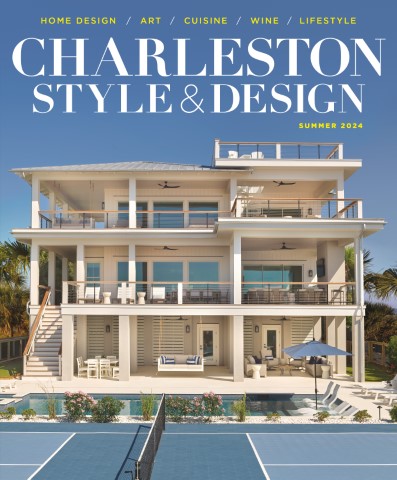You might spot them on a warm winter day as you stroll down King Street—young women in purple-and-white plaid skirts and white polos. They are high school students conducting research, interning in the community or enjoying a break from their studies at Ashley Hall, the only all-girls college preparatory school in South Carolina.
“What’s that?” you ask. Isn’t an all-girls school an anachronism, especially now, when women are proudly asserting their right to compete on a level playing field?
Not all all. Head of School Jill Muti—architect of the school’s strategic vision as well as its new campus renovation—stresses the advantages of a single-sex education at Ashley Hall, saying, “We provide a unique environment in which girls become self-reliant, independent thinkers at each stage of their development.”
Like its historic campus, Ashley Hall’s classic curriculum is innovated for the modern world. At every level, the school offers a firm grounding in history, the humanities, classics and languages, along with deep learning in STEM—science, technology, engineering and math. Muti, and the colleges where Ashley Hall graduates matriculate, suggest this marriage of the arts and sciences is the Ashley Hall difference. This spring seven alumnae from a single Ashley Hall class will graduate from the Medical University of South Carolina in Charleston, evidence that the formula is working. Exposure to Ashley Hall’s experienced- based learning model starts as early as preschool and continues through high school. The youngest students take part in Ashley Hall’s Nature Retreat, an outdoor classroom and living laboratory. In Lower School, students construct Lego-based robots, begin coding, and design and build boats. There, they also participate in the school’s world-class strings program, a course of study that has been proven to improve math scores. A focus on wellness permeates the Middle School during a time when adolescent girls in co-ed schools can often shortchange themselves. “Student life is a vital part of our world; community is as important as what we do in the classroom,” adds Muti.
Ashley Hall is the brainchild of pioneering educator Mary Vardrine McBee, who was dismayed to discover that her Southern education hadn’t prepared her to be admitted to Smith College. Undeterred, she studied to gain entry, attained a Bachelor of Arts degree, and went on to graduate from Columbia University.
To provide young women in the South with the college preparation she could not find for herself, McBee founded Ashley Hall in 1909 with the purchase of an 1816 mansion between Rutledge and Calhoun streets. Today, the McBee House, listed in the National Register of Historic Places and considered one of the finest examples of a Regency villa in the United States, is the heart of a sustainable urban campus that prepares students with a 21st-century education.
Among the architectural references that give its campus a special charm are the “bear cave,” where in the early 1900s the school’s previous owners kept a pet bear, and the Shell House, a shell-encrusted former aviary that’s a stress-free, seniors- only lounge.
Ashley Hall has embarked on a $10-million renovation to enhance its campus with new state-of-the-art labs, collaborative spaces and classrooms. The investments include a repurposed historic Humanities building, new Middle School and a reimagined 6,000-square-foot Student Life Center—all delivering on the school’s commitment to deep learning, healthy development, high achievement and community impact. “We’ve redefined what an urban campus looks like,” says Muti.
Ashley Hall alumna Casey Alward ’09 is an example of a student who credits Ashley Hall with her love of learning. “There was so much talent in the classroom,” she says of her former classmates and teachers. From Ashley Hall, Casey attended Dartmouth College and eventually moved to San Francisco to work as a software engineer for Pinterest. The skills she learned as a student at Ashley Hall helped her find success as one of the few female engineers in her company.
Ashley Hall’s constellation of alumnae extends from confident and intelligent young women like Casey to a host of leaders in technology, business, publishing, politics, law and medicine. Among them are authors Madeleine L’Engle and Josephine Humphreys, first lady Barbara Bush and philanthropist Martha Rivers Ingram. Local leaders and entrepreneurs include Helen Hill, CEO of Charleston’s Convention and Visitors Bureau; and Rhett Ramsay Outten, Mariana Ramsay Hay and her daughters, Mariana “Mini” Hay and Kathleen Hay Hagood, all of Croghan’s Jewel Box.
As the Charleston icon approaches its 110th anniversary, Ashley Hall is proving that a girl-centered education has never been more important. Muti concludes, “Strong girls become strong women at Ashley Hall.”
Amy Mercer is a writer who works in the Historic Preservation and Community Planning department at the College of Charleston.






